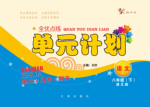
We were sad to hear the news that _______ eight Chinese peacekeeping policemen were killed in ______ Haiti earthquake.
A. the; / B. /; the C. the; a D. an; the
 全优点练单元计划系列答案
全优点练单元计划系列答案科目:高中英语 来源:天利38套《2008全国各省市高考模拟试题汇编 精华大字版》、英语 题型:050
| |||||||||||||||||||||||||||||||||||||||||||||||||||||||||||
查看答案和解析>>
科目:高中英语 来源: 题型:阅读理解

查看答案和解析>>
科目:高中英语 来源: 题型:阅读理解
查看答案和解析>>
科目:高中英语 来源: 题型:阅读理解
For millions of Chinese Internet users, the penguin is more than a flightless bird from the Antarctic. To them it is the symbol of QQ, the instant-messaging service marking its 10th anniversary.
QQ’s creator, Ma Huateng, 38, is a lover of stargazing, and describes himself as a combination of idealist and realist. “ I’m introverted. My friends believed I was too shy to find a girlfriend,” Ma said. He found a girlfriend, now his wife, through chatting online on QQ. Born in Hainan province, Ma loved watching stars and dreamed of becoming an astronomer. He moved to Shenzhen, along with his parents, in southern Guangdong province when he was in his teens. Ma was impressed by the slogan “ Time is money, efficiency is life” found all over the city. It was the most famous slogan born in Shenzhen, representing China’s reform and opening. The pioneering city provided chances for Ma to watch burgeoning reforms. He saw people carry big bags of cash to buy stocks after China launched a capital market in Shenzhen and Shanghai in the late 1980s. When he graduated from Shenzhen University in 1993, Ma designed a stock exchange software system and sold it for 50,000 yuan ($ 7,3000). He then worked as an IT engineer for five years.
It was in 1998 that Ma realized Internet would transform China and the world, and launched his own company, Shenzhen Tencent Inc. A unit of Tencent, Tencent Holdings Ltd, went public on the main board of the Hong Kong Stock Exchange in 2004. “ China’s reform and opening provided me with a chance to grow the company,” Ma said. The country had only 3 million Internet users when QQ made its debut in 1999, but now China has around 300 million Internet users, Ma said. Hu Qiheng, chairwomen of the Internet Society of China(ISC), said reform and opening not only improved people’s living standards, but also gave them a chance to explore the outside world and a chance for the Internet to boom in the country.
It was in the late 1990s that China’s major Web portals mushroomed, including Sina, Sohu, 163, Tencent and Alibaba. That boom came to sa sudden halt when the internet bubble burst in 2000. “We were under great pressure when the Internet bubble burst. Things have only recovered since 2005,” Ma said. The IT sector was among the first batch of industries in China to experience zero-tariff treatment, meaning that the nation’s Internet sector had to face challenges from international peers.
QQ, with around 450 million users, provides services such as chatting, music, games and QQ currency-an indispensable currency in china’s virtual community. “ Chinese websites have survived the competition with foreign peers over the past ten years, but it will be the next ten years that decide Chinese Internet enterprises’ fate,” Ma said. Domestic enterprises have to compete with international companies on services, innovation and core technology, he said. One of Ma’s favorite films is March of the Penguins-a French documentary directed by Luc Jacquet. He said: “Penguin is a lovely animal to me. It is a combination of love, courage and adventurism.”
1.Which of the following is true about the founder of QQ?
A.Creating an IT company of his own had always been his dream since childhood.
B.He constantly moved from place to place when he was in his teens.
C.The instant-messaging service he created brought him not only money but also a family.
D.He worked for the Shenzhen Stock Exchange after graduation.
2.China’s reform and opening led to the following results EXCEPT_________.
A.a rise in the living standards of Chinese people
B.an opportunity for IT companies to grow
C.potential industrial competition from other countries
D.a chance for people to invest in overseas stock market
3.Which of the following events did actually take place?
A.QQ suffered from a sudden decrease in the number of users when the Internet bubble burst in 2000.
B.QQ heped China’s Internet take flight.
C.QQ was equipped with the most advanced technology in the world when it made its debut in 1999.
D.QQ went public on the main board of the Shenzhen Stock Exchange in the late 1980s.
4.What can be inferred from the passage?
A.Sina and Sohu will develop services like chatting, music and games in order to survive the future international competition.
B.For the sake of domestic enterprises, the tariff needs to be adjusted to a higher value.
C.Ma Huateng views penguin as a lovely animal because it processes the characteristics that he does not.
D.The 50,000 yuan Ma earned from selling the stock exchange software system might be a part of his initial investment in Tencent.
查看答案和解析>>
科目:高中英语 来源:0108 模拟题 题型:阅读理解
查看答案和解析>>
湖北省互联网违法和不良信息举报平台 | 网上有害信息举报专区 | 电信诈骗举报专区 | 涉历史虚无主义有害信息举报专区 | 涉企侵权举报专区
违法和不良信息举报电话:027-86699610 举报邮箱:58377363@163.com